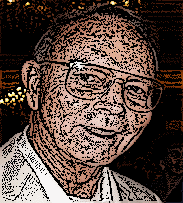
BULLETIN: Andy Bowdoin and AdSurfDaily Inc. have lost their appeal of a January 2010 order by U.S. District Judge Rosemary Collyer that $65.8 million be forfeited to the government in the August 2008 civil Ponzi scheme case against Bowdoin’s assets.
The U.S. Appeals Court for the District of Columbia unanimously upheld Collyer, rejecting Bowdoin’s claims he had been denied due process and been hoodwinked by his former attorneys into releasing his claims to the seized cash in January 2009.
“To begin with, there can be no doubt that appellants meant to withdraw their claims,” the panel ruled. “Their withdrawal motion expressly stated that they wished to ‘withdraw and release with prejudice’ their verified claims and that they ‘consent[ed] to the forfeiture of the properties.”
“Nor is there any basis to conclude that appellants were somehow tricked into releasing their claims,” the panel continued. “Despite Bowdoin’s protests to the contrary, his own affidavit shows that he understood well that he was receiving no promise in return for relinquishing his claims.”
Bowdoin’s withdrawal of his claims was “free and deliberate,” the panel ruled.
Although Bowdoin blamed one of his former lawyers for giving him bad advice, the appeals panel said nonsense.
“[F]ar from being negligent, appellants’ attorney had sound reasons for recommending that they cooperate with prosecutors by relinquishing their claims,” the panel ruled.
The ruling means that the government now has title to about $80 million seized in the ASD case. Bowdoin lost a previous appeal for a smaller sum in a separate forfeiture action brought in December 2008, and Collyer ordered the forfeiture of more than $14 million from Golden Panda Ad Builder in July 2009.
Golden Panda was the purported “Chinese” arm of ASD. It was operated by Clarence Busby, whom the SEC had implicated in three prime-bank schemes in the 1990s, according to court filings.
About $65.8 million of the total sum seized in the August 2008 forfeiture case was in Bowdoin’s personal bank accounts, including one account that contained more than $31 million.
Bowdoin initially released his claims to the money in January 2009. By late February of the same year, he sought to reassert his claims as a pro se litigant. He ultimately retained new counsel, and unsuccessfully sought to have Collyer removed from the case.
Collyer refused to step down, and issued the forfeiture order for $65.8 million in January 2010. At least one other ASD member also sought unsuccessfully to force Collyer to disqualify herself from hearing the case.
That member — Curtis Richmond — accused the judge of treason. In a separate case in Utah in 2008, Richmond claimed a federal judge owed him $30 million. That judge, too, refused to step down, finding that a purported Indian tribe with which Richmond was associated was a “sham.”
Richmond has claimed to be a “sovereign” being, as have other people with ties to ASD.
Bowdoin was charged criminally with wire fraud, securities fraud and selling unregistered securities in December 2010. The U.S. Secret Service said he was operating a Ponzi scheme that had gathered at least $110 million by disguising itself as a “advertising” business.
ASD perhaps created as many as 40,000 victims, according to court filings. The civil portion of the case featured dozens of templated, pro se filings from ASD members who asserted the government had no “EVIDENCE” of wrongdoing.
Almost three years into the case, some ASD members still are claiming the government has no evidence — despite the fact that the evidence has been discussed in open court and in public filings dating back to August 2008.
Read the ruling.
Comments
7 responses to “URGENT >> BULLETIN >> MOVING: Andy Bowdoin, AdSurfDaily Lose Appeal Of $65.8 Million Forfeiture Order; Panel Unanimously Upholds District Judge”
Yeah, I sort of thought things would turn out this way. I wonder how it will affect the proposed lawsuit to be filed by Todd Disner and Dwight Schweitzer?
Wow! The details of the Appeals Court ruling can only be described as a legal rout of the highest order. The Appeals Court obliterated everything that Andy’s high-priced lawyers dreamed up, but to be fair, they really didn’t have anything to work with. The Bowdoin side didn’t so much as sniff at scoring a point. Instead, the Appeals Court used Andy’s own words and actions, as well as his “expert” witnesses accounts, to tear down the defense. They didn’t even need to bring in the government’s plentiful evidence. This will also serve as the blueprint for Bowdoin’s eventual criminal trial.
I do believe that Saint Andy is probably wishing that he had left the country when he had the opportunity to.
Jack:
It wouldn’t have made any difference. They would have just brought hiim back. But I bet there are a lot of very nervous “major players” right about now worried that Andy will “tell all” to try to keep himself out of prison.
Lynn:
Yep, hopefully some of those nervous “major players” will be come the first participants in a long awaited “perp walk” that could send a message around the world that ponzi schemes and “wink nod” business models are not tolerated.
ARWR
It’s good to see that the US justice system does work sometimes. Great news, although not unexpected. Maybe, just maybe, some of those people who are still in denial will wake up, now that the money is gone out of Andy Bowdoin’s hands forever. Now we will have to wait and see what stunts Bowdoin and his chums pull to try to save their own necks in the criminal proceedings -and, of course, how the clawbacks from the winners will proceed.
[…] It didn’t work for Bowdoin, the 78-year old recidivist securities fraudster now serving a 78-month prison term after claiming he’d been “hoodwinked” by his lawyer. […]